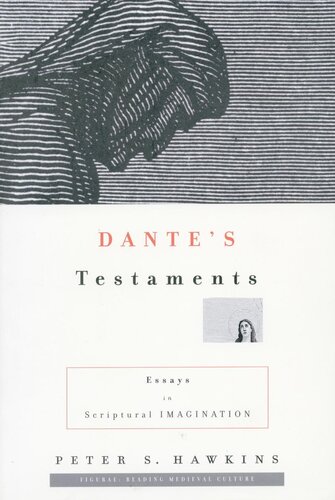

Most ebook files are in PDF format, so you can easily read them using various software such as Foxit Reader or directly on the Google Chrome browser.
Some ebook files are released by publishers in other formats such as .awz, .mobi, .epub, .fb2, etc. You may need to install specific software to read these formats on mobile/PC, such as Calibre.
Please read the tutorial at this link: https://ebookbell.com/faq
We offer FREE conversion to the popular formats you request; however, this may take some time. Therefore, right after payment, please email us, and we will try to provide the service as quickly as possible.
For some exceptional file formats or broken links (if any), please refrain from opening any disputes. Instead, email us first, and we will try to assist within a maximum of 6 hours.
EbookBell Team

4.3
58 reviewsThis book explores the wide range of Dante's reading and the extent to which he transformed what he read, whether in the biblical canon, in the ancient Latin poets, in such Christian authorities as Augustine or Benedict, or in the "book of the world"—the globe traversed by pilgrims and navigators. The author argues that the exceptional independence and strength of Dante's forceful stance vis-à-vis other authors, amply on display in both the Commedia and so-called minor works, is informed by a deep knowledge of the Christian Scriptures. The Bible in question is not only the canonical text and its authoritative commentaries but also the Bible as experienced in sermon and liturgy, hymn and song, fresco and illumination, or even in the aphorisms of everyday speech. The Commedia took shape against the panorama of this divine narrative. In chapters devoted to Virgil and Ovid, the author explores strategies of allusion and citation, showing how Dante reinterprets these authors in the light of biblical revelation, correcting their vision and reorienting their understanding of history or human love. Dante finds his authority for making these interpretive moves in a "scriptural self" that is constructed over the course of the Commedia. That biblical selfhood enables him to choose among various classical and Christian traditions, to manipulate arguments and time lines, and to forge imaginary links between the ancient world and his own "modern uso." He rewrites Scripture by reactivating it, by writing it again. To the inspired parchments of the Old and New Testaments he boldly adds his own "testamental" postscript.